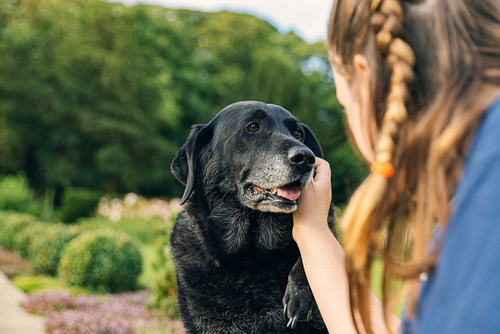
The loss of a pet is an incredibly emotional time, and making end-of-life decisions can feel overwhelming. We understand how difficult this process is and are here to provide guidance, support, and answers to your questions about euthanasia, timing, and aftercare. Below, we address some of the most frequently asked questions to help you through this challenging time.
How will I know it’s the right time?
Deciding when to say goodbye is deeply personal and often difficult. Many pet owners find clarity when focusing on their pet’s quality of life. If your pet has more bad days than good, struggles with pain, or is unable to enjoy the things they once loved, it may be time to consider euthanasia. If you are unsure, we are here to help you assess your pet’s condition and provide compassionate advice.
Can I stay during the procedure?
You are welcome to stay for as much of the process as you feel comfortable with. Many owners choose to be present, finding it helps with closure and grief, but it is entirely your choice.
Can I hold my pet during euthanasia?
Yes, you can hold or comfort your pet throughout the process, ensuring they feel safe and loved. We’ll help create a calm and supportive environment for you both.
Should my children be present?
Whether children should attend is a personal decision. For some families, it can be a healthy way for children to process grief and say goodbye. There are resources available to help children understand and cope with pet loss if needed.
Should other pets be present?
Other pets can be present if they provide comfort, but it’s important to ensure they aren’t a distraction. Allowing them to see or sniff the pet after passing can help them understand and process the loss. If you notice signs of grief in your other pets, we can offer advice to support them.
What if my pet has bitten someone recently?
By law, animals that have bitten someone must undergo a 14-day quarantine before euthanasia. Please notify us if this applies to your situation.
What happens during the process?
The sedation usually takes 10-15 minutes to take effect, during which your pet will become calm and relaxed. The final injection is given intravenously and works quickly, typically within seconds. You may notice a few deep breaths or reflexive movements, but the process is smooth and peaceful.
How long does the process take?
We take as much time as needed to ensure you and your pet are comfortable. You’ll have the opportunity to say goodbye before and after the procedure.
What happens to my pet’s body?
We partner with Evermore pet memorial services, a trusted and compassionate provider for aftercare. Evermore provides transportation of your beloved pet from our clinic and provides individualized attention throughout the entire process, to the delivery of memorials.
How do I know the ashes are my pet’s?
Evermore ensures complete traceability throughout the process, treating every pet with dignity and care.
How can I cope with losing a pet?
Grieving the loss of a pet is a natural process, and everyone experiences it differently. Reflecting on your pet’s life, seeking support from loved ones, or joining a pet loss support group can help. If you feel overwhelmed, reaching out to a counselor or hotline can provide additional comfort.
Resources for Support
- University of Guelph Pet Loss Support
- Pet Loss Canada
- Books for Adults and Children:
- Going Home: Finding Peace When Pets Die by John Katz
- Children and Pet Loss: A Guide for Helping by Marty Tousley
- Pet Loss and Children by Erainna Winnett

